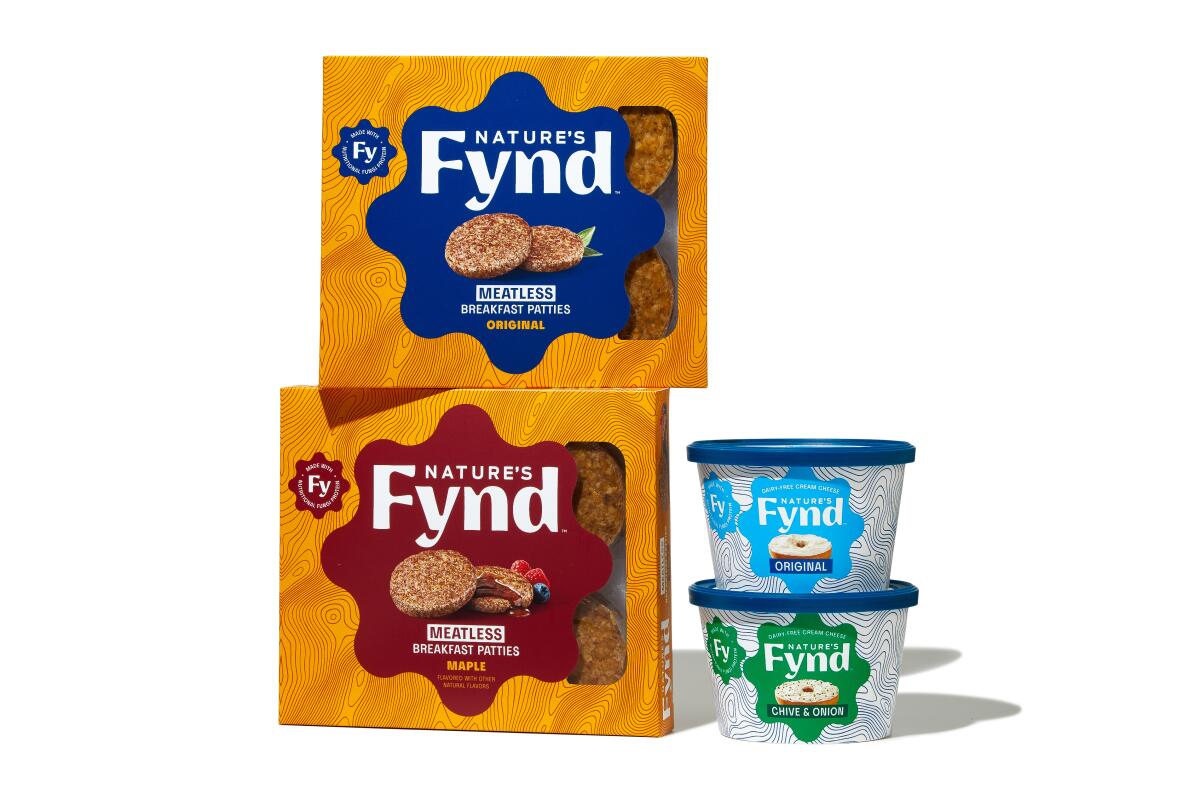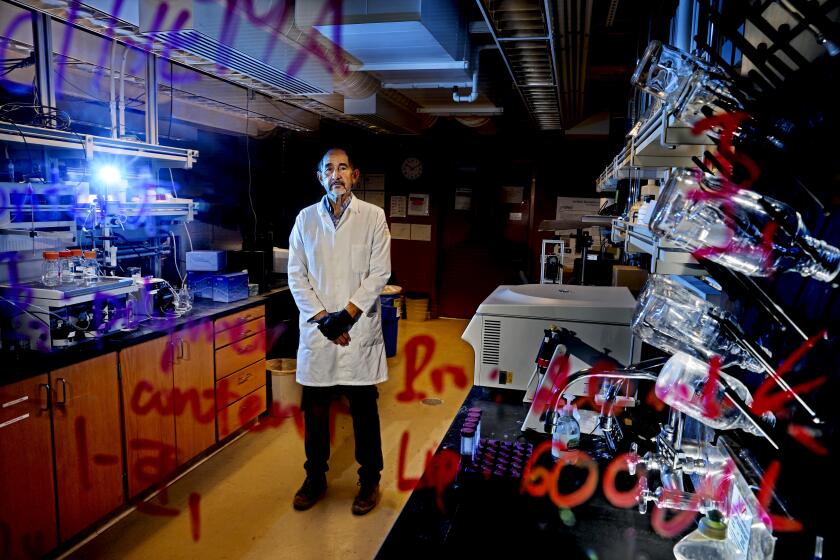Mushrooms: the next big weapon in the war against conventional meat

This story is part of our series on the future of cultured and plant-based meat. Read more here.
For the record:
11:28 a.m. Oct. 22, 2021A previous version of this article stated that Nature’s Fynd breakfast sausage patties are for sale at Metropolitan Market stores in Seattle, Fairway Market stores in New York City and Mariano’s stores in Chicago. They are for sale at Berkeley Bowl marketplace and Berkeley Bowl West in Berkeley.
Plant-based meat entrepreneurs launched the alternative-protein movement, and cultured meat scientists followed. Now there’s another group of innovators who hope a third realm of life — fungi — will be the next big weapon in the fight to wean us off conventional meat. Few of their products are available in stores, but that will change soon.
The entrepreneurs using mushroom stems and roots and the threads that make up nature’s fungal network — collectively known as mycelium — say they are creating complete proteins with all the amino acids, nutrients and texture of conventional meat. Grown atop the soil and dead trees of a forest or in a rich brew in a stainless steel vat, mycelium is used for everything from steak to bacon to chicken.
Atlast Food, based in Albany, N.Y., brought one of the first mycelium-based meats — MyBacon — to market earlier this year. Using oyster mushrooms, which provide umami, Atlast grows mycelium on wood chips and plant debris in an indoor farm. The resulting 50-by-5-foot solid slabs are sliced into strips, poked full of holes, brined in a smoky flavor bath, seasoned, dried and packaged with a thin coat of coconut oil, ready to fry straight from the package.
There now are plant-based products that mimic an expanding variety of fish, as well as chicken and pork.
At Albany’s Honest Weight Food Co-op, the only place currently selling MyBacon, the line forms at noon on Fridays when its small weekly shipment arrives. Even at $19 a pound, it’s sold out by 2 p.m. Atlast hopes to leap from pilot production to more than 2 million pounds annually by the end of the year. Company investors include organic food pioneers Stephen McDonnell, founder of Applegate Farms, and Gary Hirshberg, co-founder of Stonyfield Farm.
Tyler Huggins, co-founder of Boulder, Colo.-based Meati Foods, grows his mycelium-based alt-protein in a sugar solution in stainless steel vats.
Meati products start out as bland, doughy blobs that are soft enough to mold. “We can make it taste like chicken or steak or any meat,” Huggins says.
The list of meat mimics — plant-based, cultured, fungi-based — is mushrooming.
He plans to start selling a mycelium chicken breast this fall, initially through high-end restaurants. His investors include David Barber — co-owner of New York’s Blue Hill farm and restaurants with his brother, chef Dan Barber — and chef Grant Achatz’s Alinea Group.
Chicago-based Nature’s Fynd makes its mycelium-based meat using a microbe discovered in Yellowstone National Park during NASA-funded research into life in extreme environments. On a cellular level, the microbe (Fusarium strain flavolapis, christened “Fy” and trademarked) is a fungus, but it never grows anything resembling a mushroom cap. Bill Gates, Jeff Bezos, Al Gore and Jack Ma are among the investors who have thrown a total of $500 million into commercializing Fy.

When cultivated on the surface of a sugar-and-nutrient bath in stacked shallow trays in heated chambers, Fy grows in thin sheets resembling lasagna noodles. According to CEO Thomas Jonas, the alternative protein can be molded, dried, ground and baked into just about anything — milk, cheese, chicken, pork or flour.
Nature’s Fynd breakfast sausage patties are for sale ($5.99 for 7.4 ounces) at Berkeley Bowl Marketplace and Berkeley Bowl West in Berkeley.

“When we started this — five, six years ago now — I think a lot of consumers would have been, you know, feeling that is a very strange sort of thing,” says Jonas. “Now, I am absolutely baffled by the openness of consumers.
“Generation Z, frankly, fills us with hope because they are the ones who are going to change the world. They really integrate the constraint of climate change into their behavior in a way that nobody else has ever done.”
Berkeley’s Alt: Meat Lab connects students interested in creating plant-based proteins with potential investors
More to Read
Eat your way across L.A.
Get our weekly Tasting Notes newsletter for reviews, news and more.
You may occasionally receive promotional content from the Los Angeles Times.













